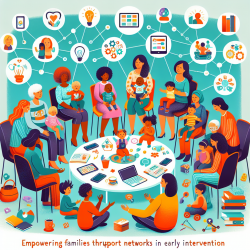Empowering Practitioners: Unlocking the Potential of Continued Professional Development
In the rapidly evolving landscape of healthcare, continued professional development (CPD) is not just an option—it's a necessity. This is especially true in the realm of maternal mental health, where the stakes are high, and the need for updated knowledge and skills is critical. A recent study published in the African Journal of Primary Health Care & Family Medicine highlights the importance of accessible CPD, particularly in low-resource settings where the challenges are greatest.
Understanding the Research
The study evaluated the impact of the Bettercare Maternal Mental Health book as a CPD tool for healthcare providers. Participants, including social workers, nursing students, and health professionals, showed a statistically significant improvement in knowledge after engaging with the material. However, changes in attitudes towards mental illness were less pronounced, indicating a need for more comprehensive strategies to address stigma.
Key Findings and Implications
The research underscores several critical points:
- Knowledge Enhancement: The study demonstrated that structured, self-directed learning can significantly improve practitioners' knowledge of maternal mental health. This is crucial for practitioners in both urban and rural settings, where traditional training methods may be inaccessible.
- Stigma Reduction: While knowledge improved, attitudes towards mental illness did not change significantly. This suggests that additional experiential learning opportunities, such as role-playing or interaction with individuals experiencing mental health issues, may be necessary to shift perceptions.
- Peer Learning: The study highlighted the benefits of peer group learning, which fosters collaboration and mutual support among practitioners. This approach can be particularly effective in overcoming professional isolation and enhancing learning outcomes.
Practical Steps for Practitioners
For practitioners looking to enhance their skills in maternal mental health, the following strategies are recommended:
- Engage with CPD Resources: Utilize resources like the Bettercare Maternal Mental Health book to stay informed about the latest developments and best practices in the field.
- Participate in Peer Learning Groups: Form or join study groups to discuss course materials, share insights, and support each other's learning journeys.
- Seek Experiential Learning Opportunities: Engage in workshops or simulations that provide hands-on experience and interaction with individuals affected by mental health issues.
- Advocate for Supportive Learning Environments: Encourage your organization to create a culture that supports ongoing learning and professional growth, including providing time and resources for CPD activities.
Conclusion
The findings from this study are a call to action for practitioners and policymakers alike. By embracing innovative CPD strategies and fostering environments that support learning and growth, we can improve outcomes for mothers and children. For those interested in delving deeper into the research, the original study offers valuable insights into the effectiveness of different learning methodologies.
To read the original research paper, please follow this link: Accessible continued professional development for maternal mental health.










